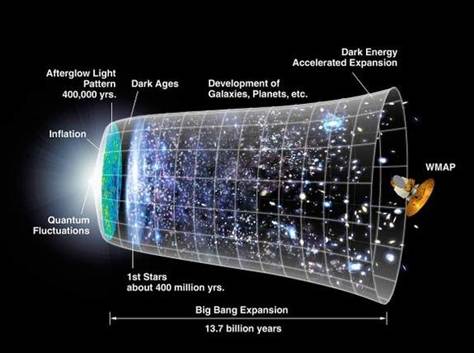“Atheist” is a translation of the Greek: atheos using the alpha privative “a” and the term for God “theos.” It does not merge the alpha private with the ENGLISH TERM “theist.” Rather “atheist” as a whole word is a translation of “atheos,” the whole word. Were the original meaning drawn entirely from etymology it would mean simply “godless,” “ungodly,” or “without God.” And this indeed is one of the definitions we find for the term in its Ancient sources. In that time, it also had the definition of “denying God/gods” which followed by implication from the notion of “godless;” if a person truly believed in a grand judge over all the universe he would not live/teach/think as if no such being existed.
However the idea of withholding/refraining belief about some God, though present in ancient Greece and Rome, tended to be subsumed under terms like “skepticism” (gk: skepticos) or “materialism” or “atomism” (a form of materialism). “Atheos” however was used to describe a different phenomenon. Thus the effective meaning of “atheos” is something like, “godless” or “disbelief in God.”Were someone to translate ancient and classical uses of “atheos” into “no belief in God” they would do an injustice to the text since that is simply not how Greeks and Romans were using the term when they first coined it, nor when they continued using it over the years.
Etymology (study of word origins, and composite meaning from word parts) is only one way that words take on meaning. When we apply etymology to the English word “atheism,” we have “athe” (from atheos “no God/Godless”) + “-ism” (belief). Belief then characterizes the “no God” hence we have, “Belief in no God.” And the alpha privative, as always, characterizes the word to which its affixed. So the belief is positive, the object of belief in negative. It is “belief in no God” or “belief in Godless[ness].” For etymology to achieve the negative definition of atheism, a popular definition today, from the term would have to be something like, “theos-a-ism” or, “No belief [in a] God.” The etymology argument then is not a friend but a foe of the negative definition of atheism.
In ancient Rome we find the positive form of atheism exercised when Christians were being persecuted and martyred for being “atheists.” They did not simply lack belief in the Roman Gods; rather they consciously rejected all God’s but one. Compared to the plethora of Gods in the Roman Pantheon, rejecting all but one is practically equivalent to atheism. Hence Christians were accused of atheism. Even ambivalence could have been tolerated among the Romans as they did with many agnostic philosophers (though the term “agnostic” had not be invented yet). But conscious rejection of the Roman Gods was seen as an intolerable affront to the State. As we can expect from ideas that are deeply rooted in human nature and the human psyche, the idea of “atheism” survived for centuries with both connotations intact: “godless” and “disbelief in God.”
However in recent times, the definition has come under question by atheist themselves. Three motivating factors can be identified. First, in debates, it is generally the better strategy to rebut the opponent’s case rather than to have to defend one’s one case. A softened definition of atheism allows for this. With negative atheism, the atheist doesn’t carry any burden of proof since that burden is on the participant/s making a positive case of some sort: “God exists” or “God does not exists.” But to claim, “I have no belief about God” is not a positive case, and therefore requires no defense in contemporary debate formats.
Second, Antony Flew’s important article “The Presumption of Atheism” argues that the default or neutral position for humanity is atheism. Building on the point just made, Flew argues that the burden of proof is on the theism to demonstrate that “belief in God” is reasonable. Essentially, Flew is arguing that negative/soft/weak atheism is man’s natural disposition, or if it is not, it is the intellectually justified default position. It is up to the theist to make a positive case for theism.
A third factor which might have played a part in this redefinition is the onset of British positivism, like that of A.J. Ayer. Ayer, among others, suggested that claims must be empirically verifiable or analytically (by-definition) true if they are to be linguistically meaningful. Theology, for Ayer, is not true, but nor is it even false. It is without meaning since its reference to God lacks analytic veracity and empirical testibility the notion cannot even be entertained as a proposition. It is like trying to argue “I believe in ‘ouch'” or “I don’t believe in ‘um.'” These terms “ouch” and “um” are emotive/gibberish terms that defy cognitive belief or disbelief. “Truth” and “falsity” do not apply to them, and, according to Ayer, nor does it apply to any God-talk. Ayer’s positivism was all the rage for a while, but today, few people are conscious advocates of this “logical positivism,” even though its scope and influence is incredibly widespread.
Understanding these three possible influences together: 1) The strategic advantage of donning a negative definition of atheism (“no belief in a God”), 2) combined with the argument of “The Presumption of Atheism,” and 3) a positivistic disposition–it makes complete sense why many contemporary atheists want to define their own camp in negative terms as “without theism, no belief in a God” instead of the historic and traditional usage of atheism as the positive position of “disbelief in God.” Addressing the complexity of the issue we find in the modern era. The term “agnostic” was coined by Thomas Huxley in 1889 with reference to his own conviction that knowledge about God’s existence or non-existence is impossible. He did not consider himself an atheist but found himself being called one.
Not surprisingly, the borders between “atheism” and “agnosticism” are often blurry or invisible. So for atheism to be distinct, defensible, and publically viable, it needs the help of some categorical distinctions since atheists are widely diverse and do not necessarily hold a party line when they don the moniker “atheist.” Somewhere in the Modern era, there seems to have been a division then in both Agnosticism and Atheism, rendering four categories from the previous two.
Negative/Weak/Soft Atheism–“no belief in God.”
Positive/Strong/Hard Atheism–“belief in no God.”
Weak Agnosticism–“knowledge of God does not exist.”
Strong Agnosticism–“knowledge of God is impossible.”
These categories are used by Michael Martin, Antony Flew, and William Rowe. I use these categories myself and find them quite helpful in clarifying some of the subtleties that arise in these debates. However, these are not standardized, and do not necessarily reflect the long history or widescale contemporary usage of “agnostic” and “atheist.” I recommend these categories for clarity of usage, but we should be careful not to follow, unthinking, the contemporary popular usage of “atheist” and “atheism” as being weak agnosticism. Etymology, history, and much contemporary standard sources defy that definition. Don’t believe me? Check some of the sources listed below. The latest entry is by atheist Kai Nielsen. William Rowe is also atheist. And I think Paul Edwards is too.
(historic usage) http://www.investigatingatheism.info/definition.html
(1942) Ferm, Vergilius. “Atheism” in Dictionary of Philosophy. Edited by Dagobert D. Runes. New Jersey: Littlefield, Adams & Co. Philosophical Library.
(1951) http://www.infidels.org/library/historical/e_haldeman julius/meaning_of_atheism.html
(1967) Edwards, Paul “Atheism” in The Encyclopedia of Philosophy, Vol. 1. Collier-MacMillan, 1967. p. 175.
(1973) Edwards, Paul, ed., “Atheism” The Encyclopedia of Philosophy. New York: Routledge, 1973
(1998) Rowe, William L. “Atheism” in Routledge Encyclopedia of Philosophy. Edited by Edward Craig. Routledge, 1998. (2009) Nielsen, Kai. “Atheism.” Encyclopædia Britannica.







